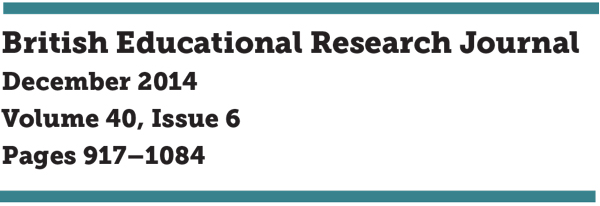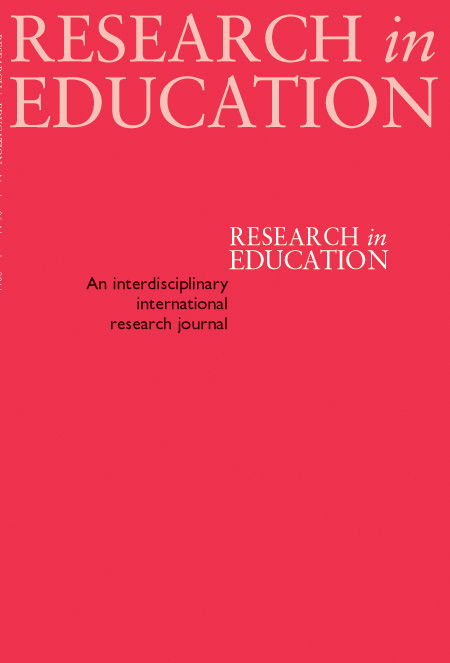
In this edition of the British Educational Research Journal, three studies caught the eye.
1. Maria Poulou: “The effects on students’ emotional and behavioural difficulties of teacher-student interactions, students’ social skills and classroom context”
When thinking about student behaviour it is often easy to think it is a one-way street, but this paper thinks of behaviour as something more complex – relating to teacher-student interactions, students’ social skills and the classroom context (particularly what goals the class is trying to achieve). Four measurement tools were given to 962 primary students, and it was found that students’ social skills were important in predicting emotional and behavioural difficulties. But they were not alone. Teacher-student interactions and the classroom context also mattered, suggesting that behaviour is more than just something residing ‘within’ pupils but is an emergent property affected by a plethora of factors.

2. Akvile Motiejunaite, Sogol Noorani, Christina Monseur: “Patterns in national policies for support of low achievers in reading across Europe”
Can a country improve the reading of its students? That’s the question the authors of this paper sought to answer by analysing data on the national policies for reading improvement in 32 countries and student reading outcomes on the international PISA tests in 2009. Policies looked at included specialist reading teachers, changing curriculum guidelines and diagnostic tests. A three-level regression analysis suggests that providing reading specialist teachers to targeted students experiencing difficulties, along with advice to classroom teachers, seems to be the most effective intervention. The authors also suggest that a right to a reading specialist for every student in need should be established centrally within government to shore up policy success.
3. Peter Wood and Jo Warin: “Social and emotional aspects of learning: Complementing, compensating and countering parental practices”
Long forgotten among the current trend for ‘character education’, this study takes a look at the program of Social and Emotional Aspects of Learning (SEAL) in primary schools in the UK. It considers the way that stakeholders in the programme interpreted what the policy was about and how it was influenced by their perception of pupils’ parents and their ability to develop ‘appropriate’ social, emotional and behavioural skills. A key finding is that in schools where teachers and leaders felt negatively about parents, the SEAL programme was interpreted as ‘countering’ and ‘compensating’ for poor parenting. In schools where parents were considered more positively, teachers and leaders felt it ‘complemented’ parenting.
The authors describe how the differing perceptions related to class and ethnicity of the parents and that
this suggested the scheme “re-affirms the practices of the dominant culture” and marginalises the less powerful. A strong conclusion that should be more widely debated in the face of the current character education debate.












Your thoughts